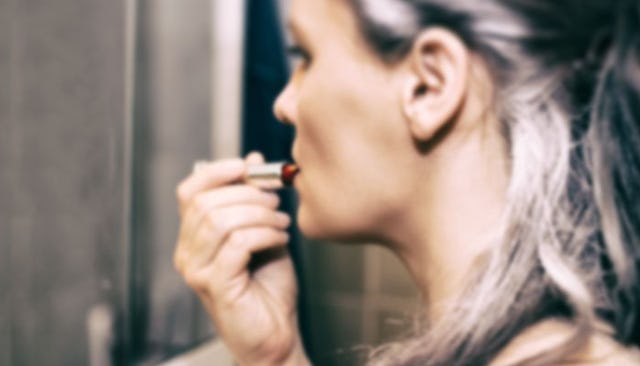Why There Is No Reason To Fear The Fabulous 40s

I first became aware that middle-aged women became invisible when I was a teenager and my grandmother was in her 50s. She’d tell me to talk to the customer service people in stores, because I’d get better service than she would. Since she was 40, she said, she’d been invisible.
I knew about invisible. I was invisible as a child. Then, as a teenager, suddenly I wasn’t—and it was intoxicating. The idea of losing that precious gift someday saddened me, but it was far in the future, and I couldn’t really believe it would happen. I had young people’s problems to worry about, and being over 40 was unimaginable.
Happen it did, of course, and at 43, I found myself with a newborn and a body upon which she’d wrought more devastation than the Goths did on the Roman Empire. I’d spent the better part of a decade pregnant, postpartum and wearing clothes that would have appalled my younger self even if they hadn’t been covered in spit-up. Stuffing a jiggling torso into spandex undergarments (I’m sorry I used to laugh at your girdle, Grandma) had become the new normal.
In my early 40s, I was worried that the invisibility brought on by having a lot of kids in a few years would be permanent, maternal invisibility segueing seamlessly into the invisibility of middle age.
In my mid-40s, I went to a professional conference where I met two women. One was in her 20s, with that dewey, glowing skin only young women have. She reminded me that even though I still looked good for my age, I no longer looked like that. The other woman was in her 50s, tall and slender, her long dark hair streaked with gray. Her dress was elegant and flattering, with great jewelry and painted toenails showing out of peep-toe high heels. I loved the fact that a woman with gray hair and lines on her face could look that stunning. I wasn’t the only one who thought so; my female colleagues all had the same reaction.
Looking at both of those beautiful women, I felt a sense of peace knowing that the young woman’s beauty was an artifact of my past and the older woman’s beauty was what I had, at best, to look forward to. The acceptance may have been in part because the older woman and I took an active part in the discussions, while the young woman was quiet and lacked confidence. She and I were at different stages in life, and mine was one where what I had to say mattered more than how I looked.
My 40s turned out not to be a decade of invisibility after all. After my fourth and last child was born, I took off the baby weight—again—and got back in shape, better shape than I’ve ever been in, really. I don’t turn as many heads as I used to, but I still turn some, and they’re not all gray or bald.
Harvard psychologist Dan Gilbert says human beings are works in progress that think they’re finished. We can’t imagine ourselves 10 years in the future. We imagine what our future self will be like and what she’ll want, but usually we get it wrong. He’s right. My teenage self hadn’t a clue about my 40-something self, and at 40, I had it all wrong about 50. I have no idea what 60 will be like, but I can be grateful for having had fabulous 40s and look forward to my 50s with anticipation rather than fear.
This article was originally published on